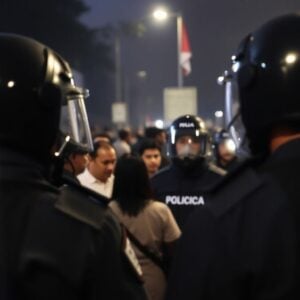Nepal has been plunged into crisis after youth-led protests against corruption, nepotism, and social media restrictions spiraled into widespread violence. The demonstrations, branded as a “Gen Z protest,” began peacefully on Monday but escalated after police responded with gunfire, leaving most of the dead and injured among young demonstrators. Hospitals continue to treat many in critical condition.
By Tuesday, protests had spread nationwide, with government buildings, political party offices, and even the Parliament in Kathmandu set ablaze. Some leaders’ homes were attacked, police stations were overrun, and the international airport was forced to close. The Prime Minister was evacuated by helicopter and later announced his resignation, while several ministers and members of parliament also stepped down in protest over the handling of the crisis.
The violence drew sharp condemnation from the United Nations. Human rights chief Volker Türk called the force used against demonstrators “unnecessary and disproportionate,” stressing that dialogue, not violence, is the only way forward. He urged authorities to show restraint and protesters to avoid destructive acts. While condemning the crackdown, he also expressed concern over attacks on public buildings, businesses, and officials.
UN Secretary-General António Guterres echoed these calls, expressing sorrow over the loss of life and urging compliance with international human rights law. His spokesperson emphasized that protests must remain peaceful and that security forces must respect life and property. The UN Country Team in Nepal also called for independent investigations into allegations of excessive force, underscoring that freedom of expression, access to information, and peaceful assembly are fundamental rights.
The protests are the latest in a series of youth-led mobilizations in Nepal, but they have quickly become the most intense. At least 19 people have been killed and hundreds wounded, fuelling nationwide anger and solidarity rallies abroad. Demonstrators stormed key government institutions, including Parliament, the Supreme Court, and Singh Durbar, while residences of senior political figures were targeted. Some prisoners reportedly escaped after police abandoned their posts.
UN officials warned that Nepal risks backsliding from its democratic progress unless grievances are addressed. Türk reminded leaders of the country’s history of overcoming conflict to build democracy and pledged UN support for dialogue and trust-building measures. The UN Country Team reinforced that message, noting that young people’s voices have been heard “loud and clear” and that lasting stability will depend on tackling the root causes of their discontent.






